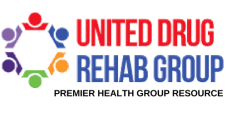The Dual Diagnosis Method: A Comprehensive Approach to Treatment
What is a Dual Diagnosis Treatment?
Through treating co-occurring aspects of addiction, it is common to find that some people who face addiction also suffer from a mental illness. Dual diagnosis treatment is a procedure used to focus on both the physical and mental side effects that substance abuse has on clients who are struggling with addiction. This allows for professionals to work together with a client for a long term, pain free recovery.
What Does Dual Diagnosis Treatment Have to Do with You?
If you find yourself struggling with substance abuse, then you could also be suffering from a mental illness. The combination of your co-occurrences can be anything. It can be a combination of cocaine abuse with depression, or it can be anxiety with an addiction to alcohol. The severity can also vary as well; therefore, your dual diagnosis treatment will be designed specifically for you.
How Did Dual Diagnosis Begin?
The development of dual diagnosis treatment began in the 1980s. According to the Dr. Robert E. Drake and his colleagues who wrote, “ Evidence-Based Practices Implementing Dual Diagnosis Services for Clients With Severe Mental Illness,” researchers found three commonalities with clients who suffer from addiction. The first was that about 50% of clients experience co-occurring disorders. Second, the dual diagnosis method is associated with various types of outcomes that include:
- higher rates of relapse
- hospitalization
- violence
- incarceration
- homelessness
- serious infections such as HIV and hepatitis
Thirdly, separating care for mental illness and substance abuse is ineffective. Controlled research studies began in the mid-1990s. Eight of the many experiments proved that the effectiveness of the dual diagnosis method had a positive outcome on those suffering from co-occurring disorders.
Where Can You Go for Treatment?
United Drug Rehab Group is a luxurious facility that uses the dual diagnosis process. Clients are set up with their own customized recovery program that is designed with the dual diagnosis method in mind. Clients will work with experienced staff members that will use a clinically managed detox to help ease away their substance abuse. The clinically managed detox is a technique that provides clients with a relaxing experience.
When our professional staff members feel that clients are ready to move forward with their recovery program, they send them to work with other experienced staff for the remainder of their time in treatment. Educated staff members are available for one on one sessions, group therapy, and other sober social modes of care. During sessions, sympathetic staff will teach positive coping mechanisms that can help control triggers and temptations. Furthermore, United Drug Rehab Group will also provide clients with a number of activities to enrich their quality of life.
Contact United Drug Rehab Group if you find yourself struggling with substance abuse.We accept clients on a rolling enrollment basis. There may be more to your addiction than you think. If there is, it’s okay, and we can help. Case managers are always available to answer your questions or concerns.


